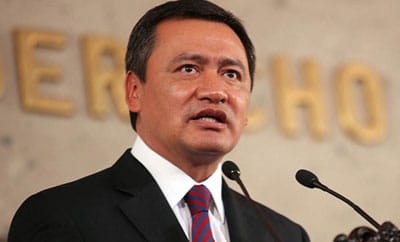Mexico‘s new government has announced plans to create a new national intelligence agency, as part of President Enrique Peña Nieto’s security reforms aimed at centralizing and better coordinating efforts against organized crime.
Speaking to press on January 14, Interior Minister Miguel Angel Osorio Chong stated that the government was moving forward with plans to create a centralized intelligence agency, to be known as the National Intelligence Center (CNI), reported Proceso.
According to La Cronica, the aim of the CNI is to bring together intelligence collected by Mexico’s police, military and Attorney General’s Office, among other institutions, in an effort to increase efficiency in the fight against organized crime. The CNI would be under the Interior Ministry and would report to the Center for Research and National Security (CISEN), Mexico’s existing national intelligence body.
Osorio added that President Enrique Peña Nieto’s plans for the creation of the CNI were in motion before he took office on December 1 last year, with members of his transition team consulting intelligence agencies from around the world, including the United States, Colombia and the United Kingdom, reported Excelsior.
InSight Crime Analysis
This move is part of the new administration’s strategy to centralize Mexico’s security apparatus. The Secretariat of Public Security (SSP) was dismantled last month as part of this initiative, moving the Federal Police to the Interior Ministry. A new National Gendarmerie is also set to be created under the Interior Ministry, and will number 10,000 agents.
Peña Nieto has stated that his security strategy is focused on preventing violence, as opposed to that of his predecessor Felipe Calderon, who launched an attack on the major criminal groups in an effort to stop drug trafficking, unleashing massive violence in many parts of the country. Many of the initiatives announced by the new president so far have focused on improving the efficiency of Mexico’s intelligence apparatus, which could be an important step if it eliminates the poor inter-agency coordination that has sometimes been a problem for Mexico’s security and justice institutions.

